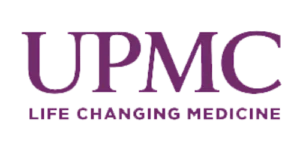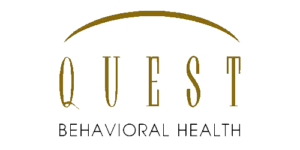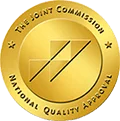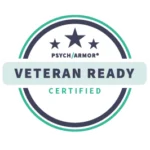Treatment typically includes antipsychotic medications, psychotherapy, and social support programs to help manage symptoms and improve quality of life. Early intervention and consistent treatment are crucial for long-term stability. At Arkview, our schizophrenia treatment program offers varying support levels for each stage of care, ensuring our patients feel empowered to manage their condition and improve their quality of life.

What are the Signs and Symptoms of Schizophrenia?
- Hallucinations:People with schizophrenia may hear, see, or feel things that aren’t real, such as voices commenting on their actions. These sensory experiences can be distressing and disrupt daily functioning.
- Delusions:Individuals may hold strong false beliefs, such as thinking they are being persecuted or have extraordinary powers. These beliefs are resistant to reason and can lead to paranoia or irrational behavior.
- Disorganized thinking:Speech and thought patterns may become fragmented, making conversations difficult to follow. A person might jump between unrelated topics or give answers that don’t make sense.
- Abnormal motor movements:This can range from unpredictable agitation to catatonia (a lack of movement or response). Some may exhibit repetitive motions or struggle with basic self-care tasks.
- Negative behavior:These include reduced emotional expression, social withdrawal, and lack of motivation. A person may speak very little, neglect hygiene, or show little interest in activities they once enjoyed.
Early diagnosis and intervention are crucial, as untreated schizophrenia can worsen over time.
What are the Benefits of a Schizophrenia Treatment Program?
- Structured Medication Management:Psychiatric professionals carefully prescribe and monitor antipsychotic medications to reduce hallucinations, delusions, and other acute symptoms. Proper medication management treatment prevents relapses and hospitalizations, allowing for long-term stability.
- Individualized Therapy Approaches:We offer evidence-based therapies like CBT to help patients challenge distorted thoughts and develop coping strategies. Therapy also addresses co-occurring issues such as anxiety or depression, improving overall mental health.
- Social Support and Community Integration:Group therapy sessions reduce isolation by connecting individuals with peers who understand their struggles. Many programs also include life skills training to help patients regain independence in daily activities and social interactions.
- Family Education and Involvement:Treatment programs teach family members how to provide effective support without enabling dependency. Educated caregivers can better recognize early warning signs of relapse and encourage treatment adherence.
- Crisis Prevention and Relapse Reduction:Regular therapy and medication adjustments help prevent symptom flare-ups before they escalate. Consistent treatment lowers emergency room visits and hospitalizations, leading to better long-term outcomes.
By addressing both medical and psychosocial needs, Arkview’s schizophrenia treatment program—alongside access to the best treatment for depression in Pennsylvania—empowers individuals to lead more stable, fulfilling lives while easing the burden on families and communities.
What Therapy Programs are Used During a Schizophrenia Treatment Program?
Cognitive Behavioral Therapy is a cornerstone of schizophrenia treatment, helping individuals identify and reframe distorted thoughts that contribute to delusions or paranoia. Through structured sessions, patients learn practical coping strategies to manage symptoms and reduce distress caused by hallucinations or irrational beliefs. CBT also empowers individuals to recognize early warning signs of relapse, allowing for timely intervention and stabilization.
Originally developed for borderline personality disorder, Dialectical Behavior Therapy (DBT) has proven effective in schizophrenia treatment by teaching emotional regulation and distress tolerance skills. Patients learn mindfulness techniques to stay grounded in reality, reducing the impact of psychotic episodes. The therapy also focuses on improving interpersonal effectiveness, helping individuals build healthier relationships and communicate their needs more clearly.
Holistic approaches like art therapy provide a nonverbal outlet for expressing complex emotions, reducing stress, and improving self-awareness. Yoga and meditation are incorporated to help patients regulate anxiety, improve focus, and reconnect with their bodies in a calming way. These therapies complement traditional treatments by addressing overall well-being, not just symptom management.
Family therapy educates relatives about schizophrenia, helping them understand the disorder and learn supportive communication strategies. Sessions address household dynamics to reduce stress and conflict, creating a more stable environment for recovery. Involving loved ones in treatment also improves medication adherence and ensures continuity of care after program completion.
Group therapy reduces isolation by connecting individuals with peers who share similar struggles, fostering a sense of community. Structured discussions help patients practice social skills, receive feedback, and gain perspective on their own experiences. The shared environment also encourages accountability, motivation, and the exchange of real-world coping strategies.
Each of these therapies plays a vital role in a comprehensive schizophrenia treatment plan, addressing psychological, emotional, and social needs for lasting recovery.
How Can You Help a Loved One Struggling with Schizophrenia?
Creating a stable, low-stress home environment is also crucial. Avoid confrontations about delusions, as arguing can increase agitation; instead, focus on their emotions rather than the content of their beliefs. Encourage healthy habits, such as regular sleep, nutrition, and medication adherence, which play a key role in symptom management. Finally, take care of your own mental health by joining a support group for caregivers, as managing a loved one’s schizophrenia can be emotionally taxing. With consistent support, many individuals with schizophrenia can achieve stability and lead meaningful lives.

What are the Statistics of Individuals with Schizophrenia in Pennsylvania?
According to the National Alliance for Mental Illness, one in four individuals with a serious mental health condition like schizophrenia have been arrested, which can be directly related to symptom flare-ups and episodes. With a premier schizophrenia treatment program, individuals can learn to manage their symptoms and maintain a healthier lifestyle.
Arkview Offers a Schizophrenia Treatment Program for Individuals on Medications in Pennsylvania
- Residential Treatment:This immersive program provides 24/7 medical supervision and therapeutic support for patients who need constant care during acute phases of their illness.
- Partial Hospitalization Program (PHP):Designed as a step-down from residential care, PHP offers structured daily therapy sessions while allowing patients to return home each evening.
- Intensive Outpatient Program (IOP):Our flexible IOP schedule enables clients to maintain work or family commitments while receiving regular group and individual therapy sessions.
- Pharmacotherapy Management:Our psychiatric team provides expert medication evaluation and adjustment to ensure optimal symptom control with minimal side effects.
- Life Skills Development: This comprehensive program teaches essential daily living skills, including meal planning, personal finance, and social interaction techniques.
If you or a loved one could benefit from our structured schizophrenia treatment approach, speak with an admissions specialist and begin the journey toward stability and independence.
- https://pubmed.ncbi.nlm.nih.gov/21352194/
- https://www.ncbi.nlm.nih.gov/books/NBK20369/
- https://www.ncbi.nlm.nih.gov/books/NBK525629/
- https://pmc.ncbi.nlm.nih.gov/articles/PMC4308051/
- https://pmc.ncbi.nlm.nih.gov/articles/PMC4002061/
- https://pmc.ncbi.nlm.nih.gov/articles/PMC4905518/
- https://pmc.ncbi.nlm.nih.gov/articles/PMC11446468/
- https://www.nimh.nih.gov/health/statistics/schizophrenia
- https://www.med.upenn.edu/psychiatry/schizophrenia.html
- https://scholarsarchive.byu.edu/cgi/viewcontent.cgi?article=1239&context=intuition
- https://news.stonybrook.edu/newsroom/early-treatment-of-schizophrenia-may-not-slow-disease-progression/






















